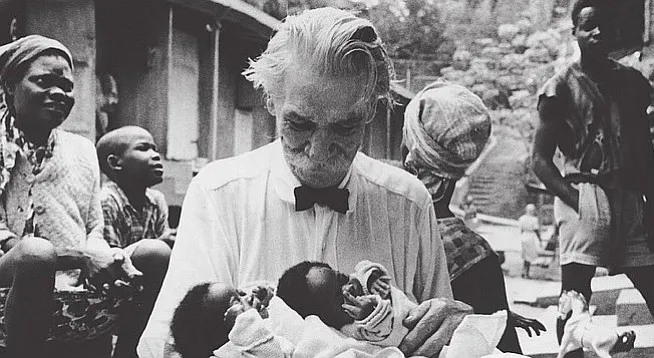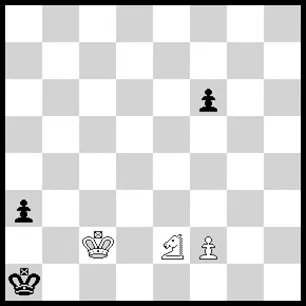
There are children who, luckily, are born to the pride of humans. One of them was born in France, one winter in 1875. His family was educated and his father was a Protestant pastor. That boy who grew up in the middle of books and music, with bread and coat, was called Albert Schweitzer. Over the years he became an architect, polyglot, writer, philosopher, became the best classical organist in Europe, a specialist in Bach, was awarded the Nobel Peace Prize and was the cousin of another famous character named Jean Paul Sartre.
Despite a rigid religious formation, when Schweitzer was hardly a child, he invented his own way of praying. Instead of "Give us today our daily bread", he said in a low voice: "It is not fair that you give us all the bread to those who have everything, Lord. Remember also the others, those who suffer, those who are hungry. Give them, too, the bread. And take care of the ox and the ant and all living beings. Let no one hurt them and let them sleep in peace."
When he was 30 years old and rich and famous in Europe, Albert Schweitzer met two Italian friends who came from Africa. They told him about the inhuman conditions in which the black populations lived, about their illnesses and pains, about the exploitation they suffered, and that same afternoon he told his wife Helena Bresslau, who would study medicine. Seven years later, the day after her degree, she traveled with her to Gabon, to equatorial Africa. There, on the verge of a dusty road, with a sheet, a kit and four sticks, he improvised his first office with a sign that read: "Free medical consultation."
The natives did not believe him. It was the first time they had seen a white man without a whip, without a Bible or without a rifle in his hand. It was the first time someone had come to really help them. And despite his status as a theologian, he proclaimed other principles: "I can not accept any religion that does not include among its commands the respect for animals." On occasion they asked him for advice to save a newborn antelope, whose mother had been killed by a hunter. Then he recommended: "Milk without sugar, air, a little sun, and a lot of love. We can not do anything for the hunter."
Thus, among the poorest of the earth, Dr. Schweitzer lived until he was 90 years old and one day it went out like a little flame in the wind. There, in Africa, they tell that in the nights the drums and the voices ask the gods that white men like him be born, even once, every thousand years. But it seems they are deaf.
Here, too, black, as in real life, pays expensive to be at a disadvantage:

1: K1B P4B 2: P4B! P7R 3: K3K checkmate
This story was originally written by my friend Ramiro Díez in Diario EL TELÉGRAFO under the following address: https://www.eltelegrafo.com.ec/noticias/columnistas/1/el-hombre-que-no-enganaba-a-nadie If you are going to use it, please quote our source and place a link to the original note. www.eltelegrafo.com.ec